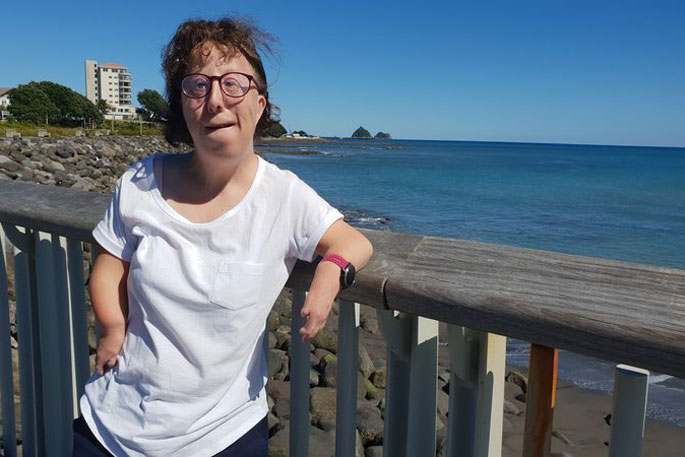Some of the country's most at-risk people say the government is trading off their safety by easing restrictions so soon.
From April 5, vaccine passports wont be required many mandates scrapped.
The move has spiked anxiety levels among many vulnerable people across the country, who are now looking to isolate from society further as restrictions ease and cases keep to the thousands.
Trying to keep your immunocompromised husband and toddlers protected from Covid is hard enough, a rural mother - who wanted to keep her name private - says.
Her ex-husband is unvaccinated, meaning their son is stuck in the middle of visiting his dad and feeling anxious about risking their household.
She says the government's announcement this week pulled the rug from underneath them.
"We felt safe before, and now we don't feel safe. We've done everything right, but this drop in the rules, the stance and the whole attitude change from the government is really quite gutting."
"If it enters our home it will just be a nightmare."
Taranaki woman Erica Perry has Millers Syndrome - which affects the development of the face and limbs.
She considers herself as someone who can always see the bright side, but the last few weeks has made her incredibly anxious, and she's been staying inside.
She says it's the reality for people who are vulnerable.
"I do understand that they can't keep all these measures forever, because it's not sustainable for the rest of the world," she says
"I guess we're the minority, it sounds a bit crass, but we are the lower denominator - the lower class - that kind of gets forgotten about."
Perry doesn't know how hard Covid-19 will hit her immune system if she gets it.
"I have a lot of pros and cons that I have to weigh up. Mentally it's tricky, trying to decide what activities will put me at more risk and what are some of the sacrifices I'm willing to make."
Perry, like many vulnerable people, is going to be spending more time at home until it feels safe.
The Disabled Person's Assembly are still reeling from Wednesday's announcement, but are unsurprised that disabled people have been let down.
"From the feedback that we've had that disabled people don't feel like they have been thought of in the moves, and where we are heading to," chief executive Prudence Walker says.
"The things that provided some safety for the population we're talking about are being reduced, and so far we're not seeing any specific measures in place to keep those people safe."
As of Thursday afternoon, 221 people have now died from Covid-19, most of whom have been above the age of 60.
Age Concern chief executive Karen Billings-Jensen says made people anxious.
A recent survey by the organisation found about a third of elderly have been and plan to spend more time in isolation.
"As we lessen the protections it might mean that more people are becoming more isolated," she says.
Billings-Jensen says it's important for people to stay connected to their elderly community, and things like phone calls or posting letters was essential in that.
While the vaccine mandate will remain for aged care and disability workers, it's being dropped for early childhood education.
Amanda Coulston of Whānau Manaaki Kindergartens says anxiety has spiked among parents of young children since the announcement.
"What they've said is 'We had a layer of reassurance, that sending our children to kindergarten meant that people were fully vaccinated.'"
Coulston says, like many in the sector, they want the government to reconsider its stance on scrapping the mandates for kindergartens.



0 comments
Leave a Comment
You must be logged in to make a comment.